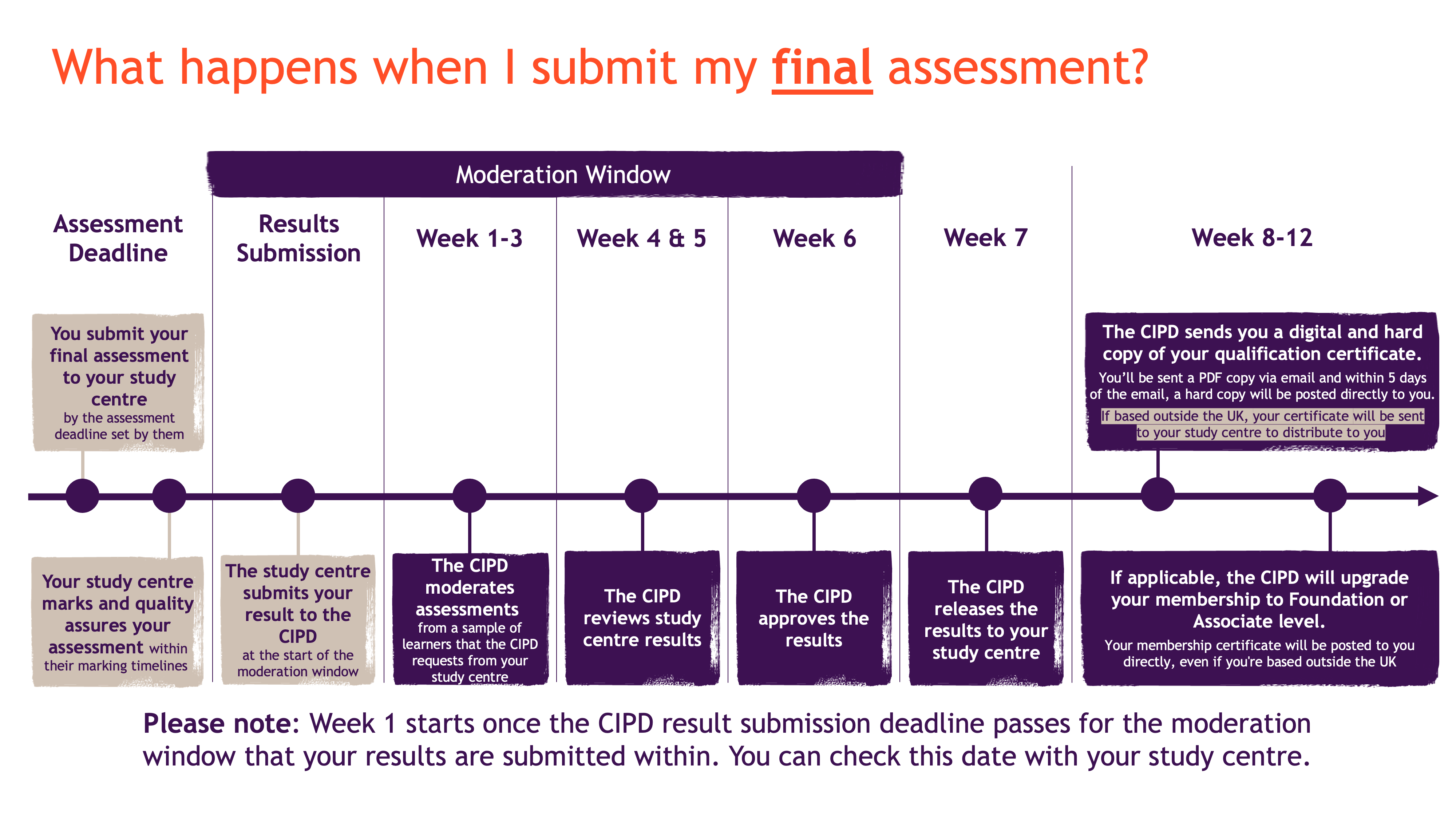How does the moderation process work?
When completing a CIPD qualification, the CIPD will moderate a sample of your study centre’s marking for each unit. We do this to ensure they are fair, valid, and reliable.
It's important that you're in active CIPD membership for the duration of your studies. This is so your study centre can send your results to us to be considered for moderation. You also need to confirm that your study centre has registered you with the CIPD on the correct qualification on your CIPD account. You’ll receive a confirmation email once your study centre registers you, with instructions to follow.
Study centres initially mark learners’ unit assessments. They then submit the relevant unit result to the CIPD at the start of the moderation window.
Core Unit Assessments
New assessments for all Core Units are released in June each year. They remain active for 12 months, expiring at the end of June the following year.
Check with your study centre when your deadline to submit will be. They can also advise when the Core Unit Assessment expiry date is.
-
What happens if I am unable to submit my assignment by the expiry date? We recommend you plan your studying. This is to ensure you can complete your assignment to meet your study centre’s deadline and the Core Unit Assessment expiry. If you miss the expiry date, you will need to complete the next Core Unit Assessment, released every June.


